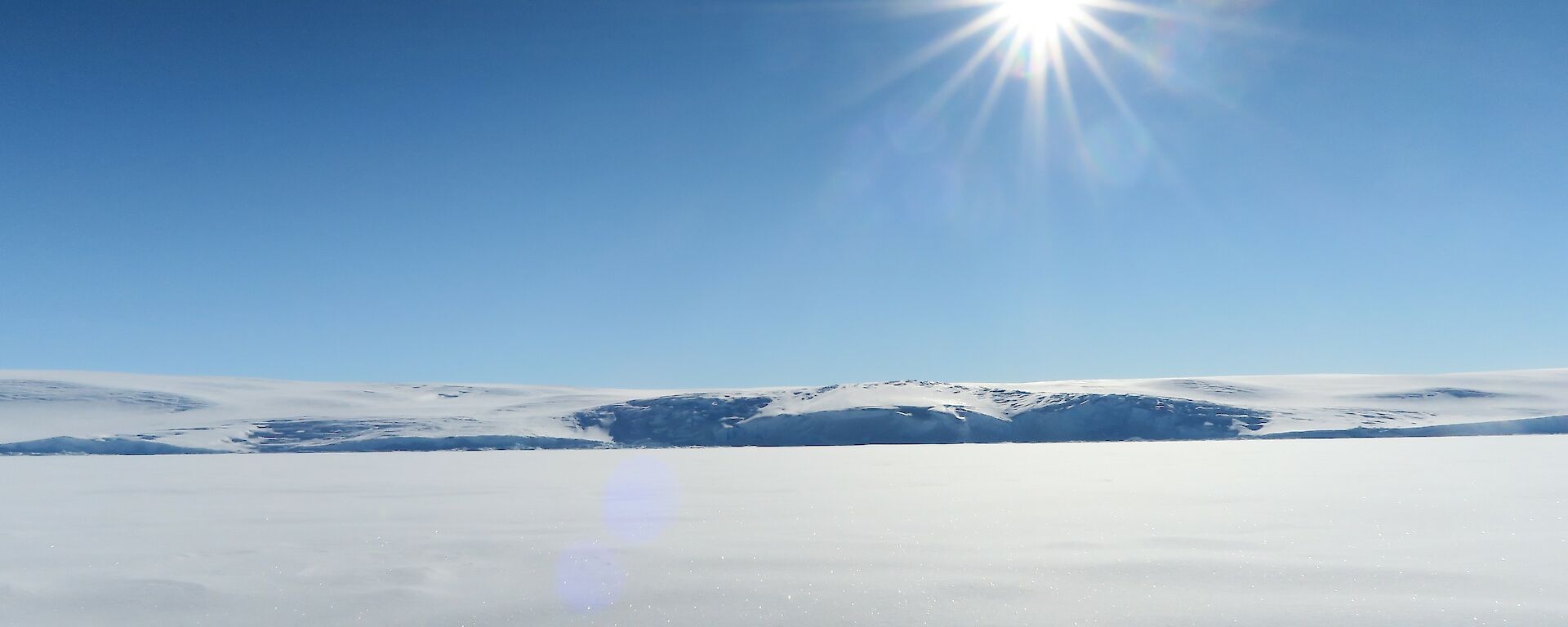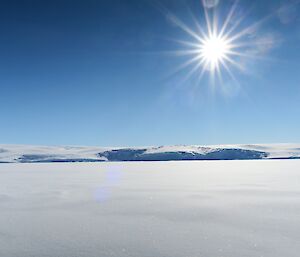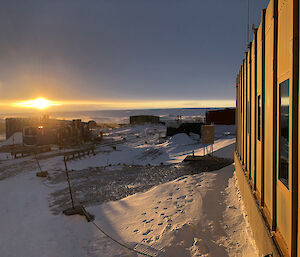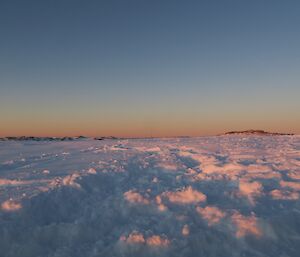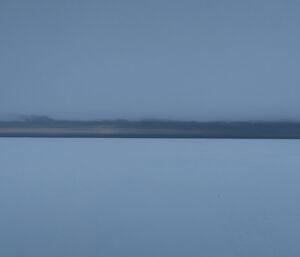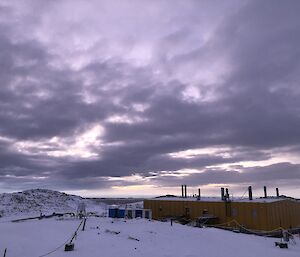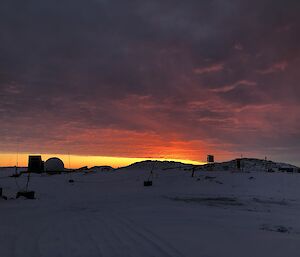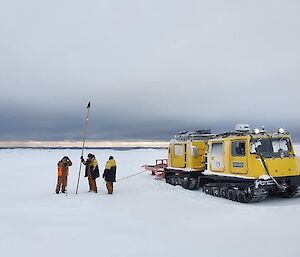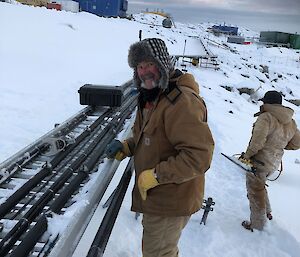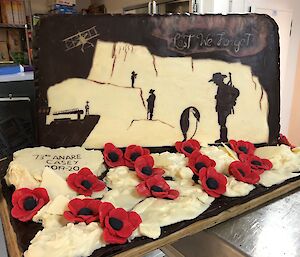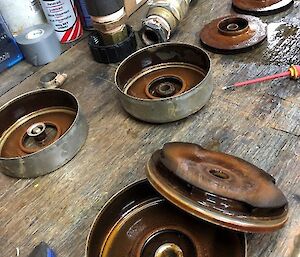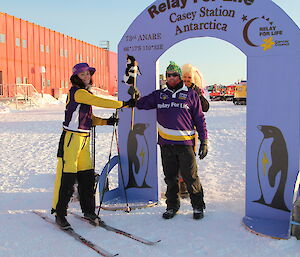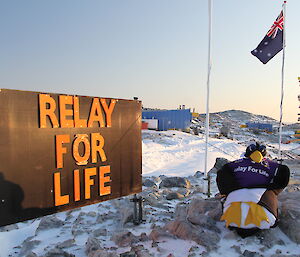When people hear the word Antarctica they often think of a ‘great white continent’ of harsh and inhospitable weather, and the black and white of penguins. It can be some or all of those things but one of the reasons that attract people back to it repeatedly is (to newcomers) the surprising amount of colour that occurs almost every day.
The angle of the sun in the sky in conjunction with cloud and other atmospheric conditions combine to create a myriad of ever-changing vistas, even when looking at the same scene. In many ways the term ‘same scene’ becomes an oxymoron. Whilst you may be looking at the same geographic features, the scene is almost never the same. From one day to the next it changes: through the addition or subtraction of snow; the large variation in the angle of the sun between summer and winter; the effect of cloud and atmosphere; even the strip of grey between the snow and the sky — all these things can make the scene you see every day as exciting and wonderous as the first time you saw it.
During summer in Antarctica the photographic ‘magic minute’ glow of sunrise and sunset lasts for hours as the sun dips toward the horizon in a slow arc and reappears again in almost the same place. Taking photos in the warm glow of a midnight sun is a humbling experience.
Clouds and sun angle provide a whole gamut of colour, from yellows to deep reds and purples. Ice and snow, along with icebergs the ocean and the sky produce an amazing quantity of blue hues of which one never tires. Overall it is a very magical place. Antarctica can still be inhospitable and will bite you badly if you don’t respect the conditions, but the rewards are immense, and the quantity of photographs continues to grow daily, often at an alarming rate!
David Wright
Met Tech, Australian Bureau of Meteorology

